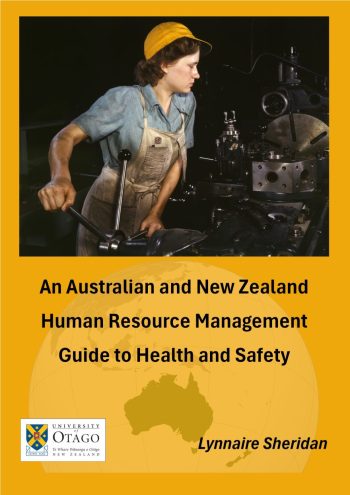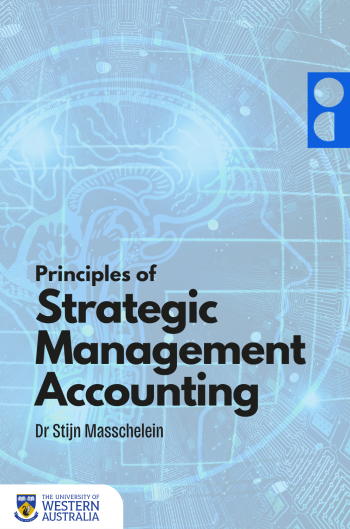Find information
Where to search
Knowing where to search is just as important as knowing how to search. The following video (2 min 14 sec) will help you to understand why and when to use different search tools.
Key points from the video
- Different search tools cover different collections of resources
- The Library Collection is a good place to search for scholarly material
- The Library Collection provides free access to a variety of resources types across a range of subject areas
- Databases help focus your search and have more advanced searching options
- Google Scholar provides access to a wide range of resources, but not all of it is scholarly
- Use the Google Scholar link from the Library website for best access to full-text references
- Search multiple places to save time and find better results
- All resources need to be evaluated before using them
The Library Collection
The Library Collection is a good place to start your search for scholarly content. You can use it to find eBooks, journal articles, reports, videos and more.
Using the "Refine my results" menu, you can refine your search to find exactly what you need.
Want to know more?
- Watch this short video (1 min 48 sec) about searching the Collection
- Test your knowledge with the following interactive tutorial:
Key databases
Databases are online collections of resources including articles, papers, book chapters and reports. Databases have advanced search options, helping to focus your search and find more relevant, scholarly references quickly.
-
Database listBrowse UniSA databases by category.
Business databases
-
Business Source UltimateCoverage includes Company Profiles, Industry Reports, Country Reports, SWOT Analysis, and Market Research Reports.
-
Emerald InsightA highly-regarded, multi-disciplinary academic database of journals and book content. Disciplines include engineering, accounting, auditing, tourism, human resources, business management, marketing and policing.
More help
-
How to save time searching databases - PDF (301 KB)Use this guide to learn how to use truncation and wildcard symbols to get the best results when searching.
Using Harvard Business Review
-
Harvard Business ReviewHBR provides insights on strategy, innovation, management and leadership and is a key business tool.
It is recommended to access the Harvard Business Review journal through Business Source Ultimate database. To search for articles on specific topics within the journal, click the 'Search within this publication' link and on the search page, enter the title or keywords starting from the second row.

Note: Leave the first row as it is.
Searching Google Scholar
Google Scholar searches academic and scholarly websites.
Searching Google Scholar via the Library website activates a "Full-text at UniSA" link - this gives you direct access to Library-subscribed content.

Want to know more?
Test your knowledge with the following interactive tutorial:
For advanced Google Scholar tips visit the Web searching page in the Library's Grey Literature and Other Sources guide.
LibKey Nomad
-
LibKey Nomad™LibKey Nomad is a browser extension that will help you access Library books and journal articles directly from websites, speeding up your research and avoiding paywalls.
With the Nomad extension activated, you can access direct links to eBooks, online articles and PDFs on websites such as PubMed, publisher websites, and Wikipedia using the following icon:
Benefits include:
- Ability to access relevant Library content conveniently and instantly via the open web
- Completely anonymous – no user data is shared with or by LibKey
- Simple browser extension that can be set up in seconds without training
Download and installation help
-
Get LibKey NomadDownload LibKey Nomad from this web page.
-
LibKey Nomad - UniSA Library - Video (2 min 11 sec)Watch this video for help with installation.
Find more information
Find company and industry information
Find case studies
-
Emerald Emerging Markets Case Studies ArchiveA collection of over 1000 case studies with a unique focus on rising economies. Navigate to the Availability filter in the lefthand menu and select Available, Open Access and Free.
-
Sage Business CasesDatabase containing a discipline-wide collection of global business cases from a variety of industries. Includes teaching notes.
Find news media
-
NewsBankThis news database consolidates current and archived information from thousands of newspaper titles and other publications. It helps to pinpoint information from primary sources at the local, state, regional, national and international levels.
-
More news databasesNews databases the Library subscribes to.
Find statistics
A huge range of statistical resources can be found on the Library's Company and Industry Information Guide (see link to the guide above), or try the following key databases:
-
OECD dataFind, compare and share the latest Organisation for Economic Cooperation and Development data: charts, maps, tables and related publications, giving the latest statistics on OECD member countries.
Find videos
Access to a wide range of video content through a number of key video databases, including:
-
HSTalksProvides access to world class lectures and case studies by leading experts from commerce, industry, the professions and academia. This collection of specially prepared animated audio visual presentations with synchronized narration is regularly updated and growing with over 900 talks.
Find skills modules
-
Sage Skills: BusinessLearn business and professional skills with these modules on data analytics, entrepreneurship, leadership, organisational communication, and professionalism. Modules are presented as readings, videos and scenarios and include self assessment questions. Click on the Sage Skills: Business link under View Online to access.
For examples of young high growth companies look at The Deloitte Technology Fast 50 2023 Australian program, which profiles and ranks the fasted growing public and private technology companies in Australia, based on percentage of revenue growth over 3 years (2021-2023).
Business OER
Open Education Resources (OER) are educational materials that have been licensed for free use and adaptation or do not have copyright restrictions.
Check out the following subject-relevant OER:
-
 An Australian and New Zealand Human Resource Management Guide to Work Health and Safety
by
Publication Date: 2023Comprised of: an historical overview, an introduction to theory, and a guide to WHS implementation via the adoption and enactment of a safety management system.
An Australian and New Zealand Human Resource Management Guide to Work Health and Safety
by
Publication Date: 2023Comprised of: an historical overview, an introduction to theory, and a guide to WHS implementation via the adoption and enactment of a safety management system. -
 Principles of Strategic Management Accounting
by
Publication Date: 2024This textbook explains the economic and sociological principles that underpin the use of strategic management accounting practices in organisations.
Principles of Strategic Management Accounting
by
Publication Date: 2024This textbook explains the economic and sociological principles that underpin the use of strategic management accounting practices in organisations. -
 Sustainable Finance
by
Publication Date: 2024Sustainable Finance provides a more holistic view of finance and answers the question of how business and investors can incorporate environmental and social factors into financial decision-making.
Sustainable Finance
by
Publication Date: 2024Sustainable Finance provides a more holistic view of finance and answers the question of how business and investors can incorporate environmental and social factors into financial decision-making.
Or explore OER titles listed in the Library Collection.
Stock exchanges
| Australia: Australian Securities Exchange | New Zealand: New Zealand Stock Exchange |
| United Kingdom: London Stock Exchange | Germany: Börse Frankfurt |
| France: Paris Stock Exchange: part of Euronext | Spain: Bolsa de Madrid |
| USA: New York Stock Exchange or NASDAQ | Canada: Toronto Stock Exchange |
| Denmark: NASDAQ Copenhagen | Sweden: NASDAQ Stockholm |
| Finland: NASDAQ Helsinki | Iceland: NASDAQ Iceland |
| Brazil: B3 | Singapore: Singapore Exchange |
| Japan: Japan Exchange Group | South Korea: Korea Exchange |
| Hong Kong: Hong Kong Stock Exchange | Italy: Borsa Italiana |
| India: National Stock Exchange | China: Shanghai Stock Exchange |
| China: Shenzhen Stock Exchange (SZSE) |

